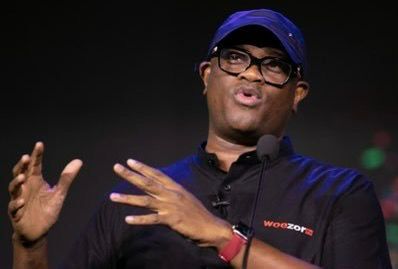The ongoing process to potentially remove Chief Justice Gertrude Torkornoo has sparked a heated political debate in Ghana, with accusations of retaliatory politics being leveled against President John Dramani Mahama by the opposition New Patriotic Party (NPP) and an alliance of other parties. These accusations stem from the President’s suspension of the Chief Justice and the initiation of removal proceedings, actions that the opposition views as an assault on the judiciary and a politically motivated response to past actions. The opposition’s concerns culminated in the #SaveTheJudiciaryDemo, a protest aimed at pressuring the President to reverse his decision and halt the removal process.
Stan Dogbe, Deputy Chief of Staff in charge of Operations at the Presidency, has vehemently refuted these allegations, defending the President’s actions as strictly constitutional and devoid of any vengeful intent. He characterized the opposition’s claims of retaliation as an inadvertent admission of potential wrongdoing by the previous NPP government. While acknowledging the political undercurrents inherent in such processes, Dogbe insisted that President Mahama’s decisions are guided solely by the provisions of the 1992 Constitution and are not influenced by a desire for retribution. He portrayed the President as a “father-for-all” figure who prioritizes due process and respects the independence of the judiciary.
The core of the controversy revolves around the establishment of a committee tasked with investigating the petitions against the Chief Justice. Dogbe emphasized the committee’s autonomous nature, highlighting that its findings will be binding on the President. He drew parallels with the binding nature of advice provided by the Council of State, underscoring the President’s commitment to adhering to established protocols and respecting the outcomes of these independent processes. This adherence to procedure, Dogbe argues, demonstrates the President’s commitment to upholding the rule of law and dispels the notion of any personal vendetta driving the removal process.
The opposition’s concerns, voiced through the Minority Leader in Parliament, Alexander Afenyo-Markin, center on the perceived targeting of the Chief Justice as a form of political payback. They view the suspension and removal proceedings as an attack on the independence of the judiciary, potentially undermining the separation of powers essential to a functioning democracy. The #SaveTheJudiciaryDemo reflects the depth of their apprehension, signaling a broader concern about the potential erosion of judicial autonomy under President Mahama’s leadership.
Dogbe’s counterargument rests on the assertion that the President’s actions are not motivated by past grievances but are instead rooted in upholding the Constitution. He portrays the ongoing process as a necessary measure to address legitimate concerns raised in the petitions against the Chief Justice. By emphasizing the President’s respect for due process and the independence of the investigative committee, Dogbe aims to portray the removal proceedings as a legitimate exercise of constitutional powers rather than a politically motivated attack on the judiciary.
Ultimately, the conflict boils down to a clash of interpretations and perspectives on the President’s motivations. The opposition sees the removal process as an act of political retaliation, while the Presidency maintains that it is a principled adherence to constitutional procedures. The outcome of the committee’s investigation and the President’s subsequent actions will be crucial in determining public perception and the long-term implications for the relationship between the executive and judicial branches of government in Ghana. The ongoing debate underscores the delicate balance between upholding the rule of law and navigating the complexities of political dynamics.


